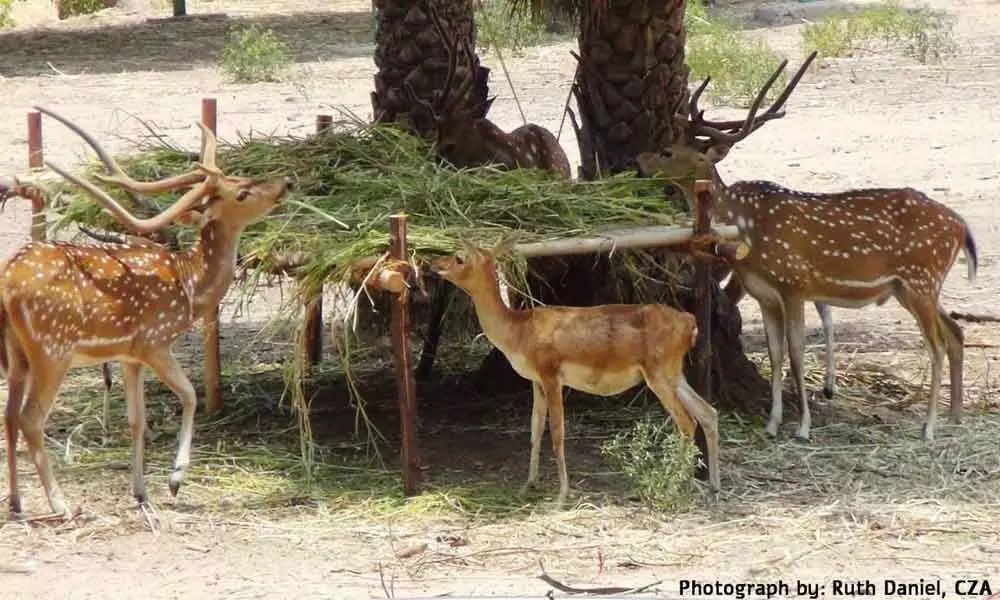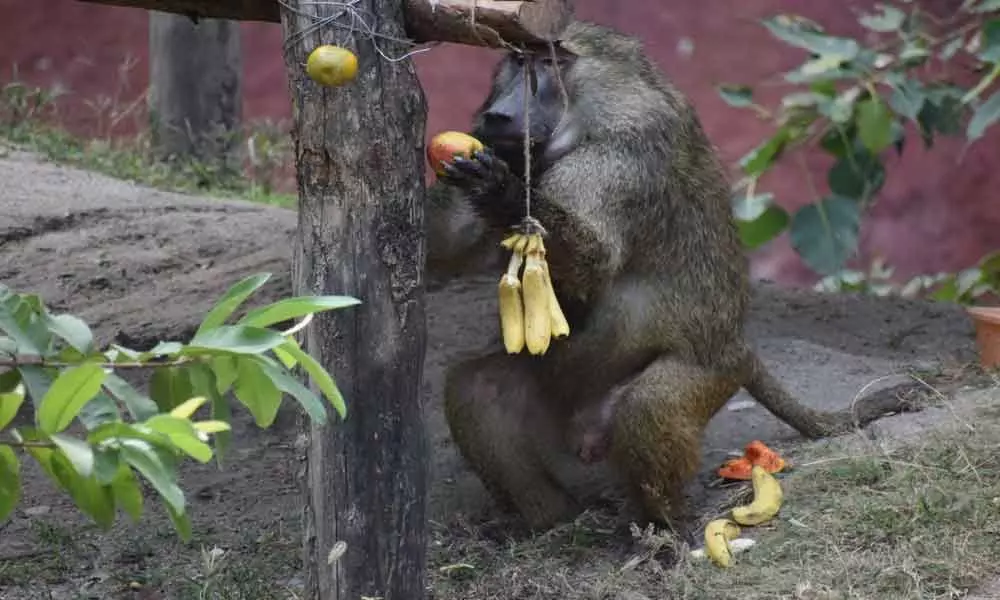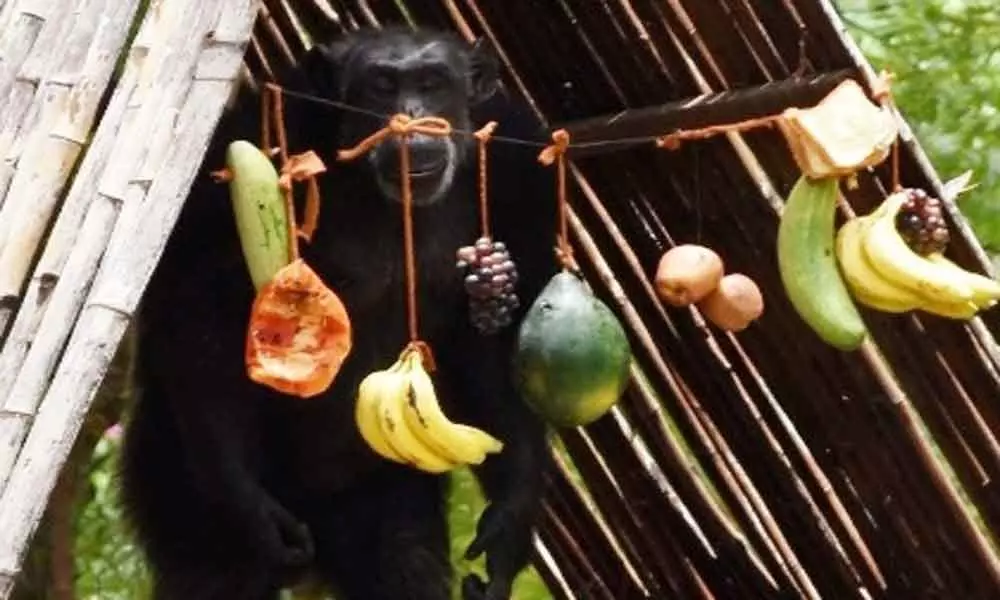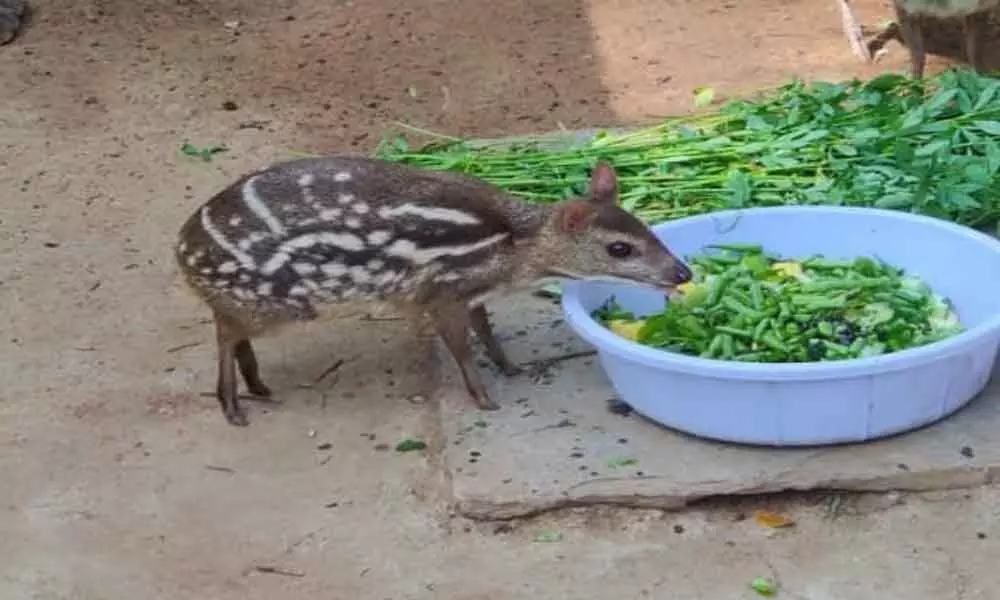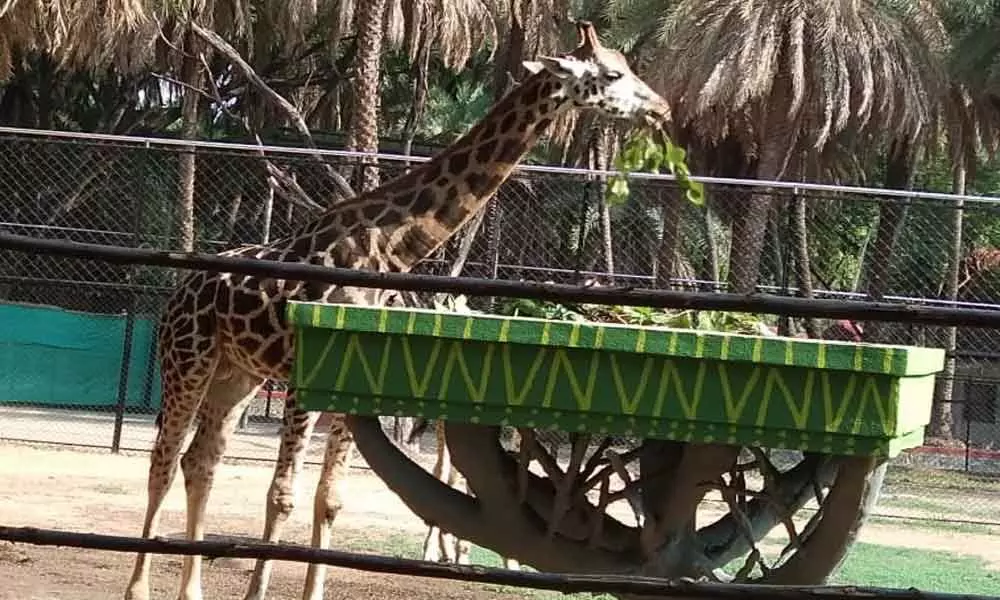Animal adoption keeps zoo coffers ringing
Animal adoption at the Nehru Zoological Park (NZP) is looking up and the most adopted animal is the tiger. With cash ringing due to adoption, it is a great motivation for zoo officials as it helps procuring food and maintenance of animals in a proper manner continuously.
Hyderabad: Animal adoption at the Nehru Zoological Park (NZP) is looking up and the most adopted animal is the tiger. With cash ringing due to adoption, it is a great motivation for zoo officials as it helps procuring food and maintenance of animals in a proper manner continuously.
On an average, the zoo spends Rs 42 lakh per month on the maintenance of animals. The procurement of food is done on daily and weekly basis based on the type of food. Besides this, some animals need protection from extreme weather conditions and treatment when they fall sick. The officials have to arrange water coolers and water showers during summer, and heating equipment during winter.
Though the number of the fabulous feline is 26 but it is the elephant and the giraffe that needs maximum support. The zoo spends Rs 5 lakh on each elephant and giraffe. There are five elephants and three giraffes at the zoo.
Explaining the daily food needs of animals, H M Hanifulla, public relations officer, NZP, said, "Each of the five elephants needs 250 kg grass, 5 kg sugarcane, 5 kg raagi, peepal and banana leaves, 5 kg boiled rice and 2 litres of groundnut oil. The giraffe loves watermelon and consumes about 70-80 kg of fruits and veggies that include sweet potato, cabbage, apples, bananas and jaggery. And a tiger needs 8 kg meat, 1 kg chicken, 2 raw eggs and half-a-litre of milk."
In the financial year (2019-20), till date the adoption amount touched Rs 36.12 lakh against Rs 31.12 lakh previous year. N Kshitija, curator, NZP, says, "This year the State Bank of India adopted 15 tigers. It is the most popular animal for adoption, the next is the elephant. When people think of wildlife and forests, the tiger comes to mind first."
Animal adoption started gaining ground from 2017-18, when the zoo received Rs 18.51 lakh and since then it has been growing steadily. Several schools and corporate houses are coming forward say zoo officials. "More corporates need to come forward as part of CSR activity. We are distributing pamphlets at conferences and meetings. We are hopeful that more people would come forward," says Kshitija.


